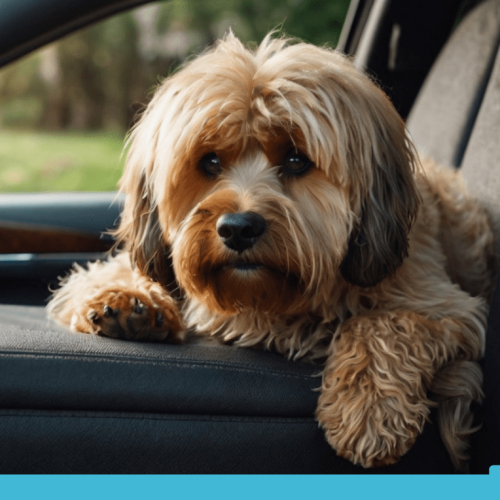Table of Contents
ToggleMountain Dog Rescue : Finding New Homes for Beloved Breeds
Bernese Mountain Dog Rescue California: Dogs, especially Bernese Mountain Dogs, are gentle and loving dogs that make great family pets.
Whether you have room to help someone move into your home or are considering bringing one into your home, knowing the rescue options for 1 in California will help open your heart to a loving companion in need.
Fortunately, countless organizations work tirelessly to rescue and rehome these dogs, giving them the chance for a happy, healthy life.
Save Our Berners, formed in California, where Thoracic Red Profiles have begun to explode in recent years. It is essential to address the fact that many of the dogs that need to be rescued come from difficult backgrounds, which will always be a challenge.
Local organizations do everything they can to ensure that dogs that need to be rescued get the help they deserve. Bringing a rescue dog home is a life-changing experience for the dog (and you!).
You can also get involved with Bernese Mountain Dog Rescue.
There are many ways you can adopt, volunteer, or donate. Whatever you decide, your donation makes a difference in the lives of these wonderful dogs.
Key Takeaways
- Moving on to the type of adoption available at Bernese Mountain Dog Rescues in California.
- Ways to support rescue efforts include volunteering, donating and/or adopting.
- Origins of the InformationKnow, the dog breed and each specific breed have different needs.
History of Bernese Mountain Dog Rescue in California

The history of Bernese Mountain Dog Rescue in California reflects the journey of the breed from its origins to its growing presence in the rescue community. Understanding this history helps you appreciate the efforts made to support these dogs in need.
Origins of the Breed in California
Bernese Mountain Dogs’ history goes back to Switzerland, where they were used as working dogs. The American Kennel Club recognized them in 1937, which helped increase their popularity in the United States, including California.
As families recognized their loyal and gentle nature, the breed gained enthusiasts who wanted to share their lives with Berners. High demand during the late 20th century contributed to the influx of Bernese Mountain Dogs in California. Unfortunately, with popularity often comes abandonment, leading to a need for rescue efforts.
Evolution of Rescue Organizations
In the 1990s, the first organized rescue efforts for Bernese Mountain Dogs were formed in California. Recognizing the breed’s needs, local volunteers came together to start rescue organizations focused on rehabilitating and rehoming these dogs.
Notable groups like the NorCal Bernese Mountain Dog Rescue emerged to address the needs of abandoned or neglected dogs.
They aim to find loving homes through community support and donations. Today, numerous rescues and clubs operate throughout the state, strengthening the adoption network for Bernese Mountain Dogs.
Adopting a Bernese Mountain Dog

Adopting a Bernese Mountain Dog involves a thoughtful process to ensure a successful match between you and your new pet. Understanding the assessment and matching criteria, along with post-adoption support, is essential for a rewarding experience.
Assessment and Matching Process
Before adopting, you will undergo an assessment. This helps the rescue organization understand your lifestyle, home environment, and preferences.
Key Factors Considered:
- Activity Level: Bernese Mountain Dogs are active and require daily exercise.
- Living Situation: Your home should accommodate a more giant breed with space for movement.
- Family Dynamics: Assess if you have children or other pets, as this can affect compatibility.
You may fill out an application and participate in an interview. Based on this information, the rescue will suggest dogs that best fit your family and lifestyle. You may also have the chance to meet potential companions to see how they interact with you.
Post-Adoption Support
After bringing your Bernese Mountain Dog home, support continues. Most rescue organizations provide resources to help you with the transition.
Support Includes:
- Training and Behavior Guidance: Tips for basic training and addressing any behavioral issues.
- Health Resources: Information on veterinary care and nutrition specific to Berners.
- Community Connections: Opportunities to join social groups for dog owners, fostering friendships and support.
This ongoing assistance ensures a robust and happy bond between you and your Bernese Mountain-Dog. Establishing this relationship early on lays the groundwork for a fulfilling life together.
How to Support Rescue Efforts
Supporting Bernese Mountain Dog rescues in California can make a significant impact. You can contribute through your time and resources. Here are two effective ways to help.
Volunteering Opportunities
Volunteering is a crucial aspect of rescue organizations. Many rescues rely on volunteers for tasks like fostering dogs, transporting animals, and assisting at events.
You can find opportunities to help at various organizations. Contact local rescues, such as the Bernese Mountain Dog Club of Southern California or NorCal Bernese Mountain Dog Rescue.
Tasks may include:
- Fostering: Provide a temporary home for dogs in need.
- Event assistance: Help at adoption events and fundraisers.
- Transport: Drive dogs to vet appointments or new homes.
Your involvement can ensure these animals receive the care they deserve.
Fundraising and Donations
Funds are essential for rescue organizations. They help cover veterinary care, food, and supplies for the dogs. Donating money is a straightforward way to support.
Consider participating in fundraising events. These can include:
- Dog walks or runs: Collect pledges for miles walked.
- Online crowdfunding: Create campaigns to raise money for specific needs.
- Donation drives: Share wish lists of supplies needed, such as food and toys.
You can also directly support rescues by making monetary donations or sponsoring a specific dog. Your contributions can help transform lives and support better futures for these dogs.
Bernese Mountain Dog Healthcare and Maintenance

Caring for a Bernese Mountain Dog requires attention to their health and well-being. Regular veterinary check-ups are crucial to catch any health issues early.
Common Health Concerns
Bernese Mountain Dogs can face specific health issues. Some of the most common include:
- Hip Dysplasia: A genetic-condition where the hip joint doesn’t fit properly.
- Elbow Dysplasia: Similar to hip dysplasia, affecting the elbow joint.
- Bloat: A severe-condition where the stomach twists, requiring immediate attention.
Regular Care
To keep your Bernese healthy:
- Nutrition: Give them high-quality dog food suitable for their size and age. And talk to your vet about recommendations.
- Exercise: Regular-physical activity helps maintain a healthy weight. Get 30–60 minutes of exercise each day.
- Grooming: You must brush your thick coat regularly to avoid matting. Aim for at least once a week.
Vaccinations and Preventatives
Ensure your dog is up to date on vaccinations. Discuss preventative care, such as flea and tick prevention, with your veterinarian. This helps protect against common parasites and diseases.
Dental Care
Make sure to pay attention to dental health. Brush your dog’s teeth regularly and consider dental chews. This can help prevent gum-disease and keep their breath fresh.
Maintaining the health of your Bernese Mountain Dog requires consistent effort. Still, it is rewarding for both you and your pet.
Frequently Asked Questions about Bernese Mountain Dog Rescue California

This section provides information about adopting a Bernese Mountain Dog, their lifespan, costs, and the challenges you may face as an owner. Understanding these key points will help you creat informed decisions about welcoming a Bernese Mountain Dog into your home.
How can I find a Bernese Mountain Dog to adopt in Southern California?
To adopt a Bernese Mountain Dog in Southern California, you can start by contacting local rescue organizations. Many groups, such as the Bernese Mountain Dog Club of Southern California, focus on helping these dogs find new homes. You can also check animal shelters and online adoption platforms.
How long does a Bernese Mountain Dog live?
The lifespan of Bernese Mountain-Do is from 7 to 10 years. They are prone to several health problems, so regular vet visits are essential. A long, happy life for your dog may also be maintained through a proper diet and exercise routine.
What type of breed are Bernese Mountain Dogs, and Why are Bernese Mountain Dogs such an expensive breed?
Due to their breeding and care needs, Bernese Mountain Dogs can be expensive. Puppy prices typically fall between $700 and $1500. They can also have serious health problems that can cost a lot of money in vet-bills their whole lives.
Are Bernese Mountain Dogs used as rescue dogs?
Bernese Mountain Dogs can indeed and do participate in rescue operations. Generation after generation, they have adapted to environmental strains and familial pressures, with their strong bodies and pleasant upbringings giving rise to the necessary attributes for search and rescue work. However, only some Bernese Mountain Dogs are trained for this work, so evaluations will verify that they are well-suited.
What problems are there with having a Bernese Mountain Dog?
Caring for a Bernese mountain dog presents special challenges, including their proclivity to health problems such as hip dysplasia and bloat. Their larger size also means they should have plenty of room to roam and regular activity to stay fit. Training time can also require patience and time.
What’s the process of adopting a Bernese Mountain Dog around Los Angeles?
Los Angeles adoption of Bernese Mountain Dogs: contact local rescues or shelters for this breed. Most organisations use an online application process. Attending adoption events to meet dogs is another option.
Also Read : Dog Life Info











